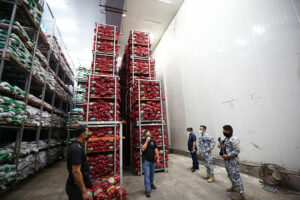Making strides in diversity

It being Women’s Month this March, we at the Management Association of the Philippines (MAP) are happy we now have a diverse Board of Governors, with not just a few women but almost an even number of men and women serving on the board. At the Institute of Corporate Directors (www.icd.ph), we also have women on the board. And so, we count the successes we have made in instilling consciousness about diversity not only in the workplace, but in the boardroom as well.
In public companies, especially the related conglomerates, we still need to achieve the goal of 20% of seats going to women as it still stands at 17%. This means there is much work to be done by our organization, NextGen Organization of Women Corporate Directors or NOWCD (www.nowcdphils.com), to encourage companies to become more inclusive and diverse.
But we have come a long way, baby, as the 1970s cigarette ads used to say.
Time was when board rooms meant men in black suits, smoking cigars, and leafing through annual reports. Today, we see younger men, career women, and specialists in technology or digital finance being invited to sit on boards. I am one of the lucky ones who was invited by a renewable energy company to sit on its board as an independent director. The professionals on the board recognized my experience in sustainability, which led me to the board room, and not because of any audit or finance expertise.
And this is why I encourage women who are in the C-suite to think about their next step, and that is to join a board, not just in organizations but in publicly listed companies. One can, of course, start with advisory boards, using your expertise or experience to add spice to the discussions and plans of the organization. Another way is to start and be active in NGOs or non-profits so you can have varied experiences of how boards are run. I was lucky to have served in the Peace and Equity Foundation (www.pef.ph) for several terms, and I was exposed to endowments, social development work, and people who were of the same mindset to serve the poor and underserved. What an enriching experience it was!
I was also tapped by the Women’s Center of the Technical Education and Skills Development Authority (better known as TESDA), to serve on its Advisory Board. This was another enriching journey to empower women through Technical and Vocational Education and Training (TVET). It is not a business, but an educational institution that makes more women employable and arms them with skills for career advancement. This was another enriching exposure, not to businesspeople but to professionals, educators, and civil servants. It was also an education on how government works, which is a little different from how regular business functions. You will need to understand the law, the mandate of the institution, and it becomes a learning experience for a private individual, like myself.
It has truly been a long time since I was the lone woman Governor in MAP, as more women were elected to be governors in the last few years. I was the only woman back then, but I value those years when my colleagues and I discussed national issues at board meetings. I felt very privileged to hear from seasoned corporate executives on how MAP could help change the country through our activities. And that continues today, with MAP representing the voice of business, and being the voice of business in proactively pushing the government to act on the important issues of the day.
In the coffee front, we at ASEAN Coffee Federation (www.aseancoffee.org) have women on our Board even if coffee used to be very male dominated. Today, there are women roasters, traders, processors, and farmers, of course. In fact, women coffee farmers make up most pickers and sorters of coffee, a tedious job men do not really like to do or get bored doing. For women, coffee sorting is therapy and a good quiet way of earning a living.
Globally we have the International Women’s Coffee Alliance or IWCA (www.womenincoffee.org) in 43 countries that produce and consume coffee. Here in the Philippines, we established a chapter in 2012 and soon our ASEAN sisters followed suit. So, today we have chapters of IWCA in Vietnam, Indonesia, and Myanmar. There also are chapters in Australia, Japan, and Korea.
The women-focused economic organizations in the country have also formed an alliance, or umbrella network, called the Philippine Women’s Economic Network (PhilWEN), composed of the young women entrepreneurs in the Network for Enterprising Women (NEW), the female CEOs in the Filipina CEO Circle, the business and professional women in Business and Professional Women-BGC, the Samahan ng mga Pilipina para sa Reporma at Kaunlaran or Spark, and NOWCD. PhilWEN is able to get international partners who also work on diversity and inclusion, such as Investing in Women of Australia, Oxfam, GIZ, and soon USAID.
The only other thing we need is probably a Ministry for Women and Children, like in other ASEAN states such as Cambodia. But it will not be too far off. Who would have thought we would have the Department of Information and Communications Technology (DICT) in this century, or the Department of Migrant Workers (DMW)? A ministry for women’s concerns may be a legacy the present Administration can bequeath to the next dispensations. After all, our First Lady knows the law and she can be a good influence to drive women’s concerns forward. Finally, a good senator and a progressive congresswoman will make sure the law is passed. After all, we are half the population, and we compose more than half of the MSMEs which drive the economy.
Yes, women have made big strides in pushing for diversity and inclusion. It is not about being equal. It is about optimizing the strengths of women and making sure we leverage the use of women’s talent and prowess which are, if I may say so, natural gifts women are born with.
Happy Women’s Month!
Chit U. Juan is co-vice chair of the Management Association of the Philippines’ Environment Committee. She was the chair of the Asean Women Entrepreneurs Network (AWEN) from 2016-2018 and is now a PhilWEN trustee and member of AWEN’s Advisory Council. She is also 1st vice-president of the ASEAN Coffee Federation.



![Photo of [EXPLAINER]: Should we use ChatGPT?](https://redstateinvestings.com/wp-content/uploads/2023/02/Explainer_Regalado_2023-02-17_thumb-300x169-3TyuIq.jpeg)
